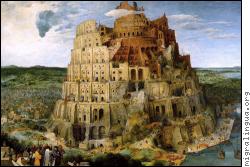Library

Allophone
An allophone is a speaker whose mother tongue is a language other than the official language(s) spoken in a given territory and who usually resides in this territory. For example, in French-speaking Switzerland, an allophone is a person whose mother tongue is a language other than French.
Literacy education
The term encompasses actions, policies and programmes aimed at eradicating or, at least, reducing the scope of the phenomenon of illiteracy.
Assimilation
(Cultural) assimilation is the process which a foreign individual (or a group) goes through in order to become part of a new social group. It is generally accompanied by language assimilation.
Asymmetry
In the interpreter-migrant-official authority relationship, there is typically a relationship which is not balanced insofar as the officials have the upper hand and the migrant is in a situation he/she does not control. Therefore, one speaks of an asymmetrical relationship.
Functional illiteracy
The state of an individual who, having learned to read and write, is unable to understand the meaning of a simple text.
Immigrant
According to the definition adopted by the High Commission for Integration, an immigrant is a person born as a foreigner abroad and living in a country other than his/ her country of origin. People born Swiss abroad and living in Switzerland are therefore not counted. Conversely, some immigrants may have become Swiss. The immigrant status is permanent: an individual continues to belong to the immigrant population even if he/she acquires Swiss nationality. It is the country of birth, and not the nationality at birth, which defines the geographical origin of an immigrant.
Integration
The integration process takes in all aspects of life of a society and involves as much the migrant as the host society. Current migration phenomena expose host societies to increasingly varied cultural influences. These influences may be addressed in a constructive manner, while maintaining coherence and social unity. Integration measures generally aim to maintain or restore the harmonious functioning of society and enable people who need support to eventually participate in the economic, social and cultural life of the country.
Community Interpreting
By this term, we understand "the oral transmission of expressions formulated in a language other than the language used in the environment, while taking into consideration the sociocultural background of the speakers. For many allophones, presuppositions are not the same as those of a resident. The interpreter must therefore facilitate the communication by clarifying what is not said, that is to say sociocultural aspects which are connected with codes and cultural practices which can often create comprehension difficulties. These difficulties do not only come down to language problems in the strict sense of the term, but rather to an understanding of the context of the host country, on the one hand, and of the country of origin of the migrant on the other hand.
Mother tongue
The mother tongue refers to the first language a child learns. In some cases, when the child is brought up by parents or people speaking different languages, he/she can acquire these languages simultaneously, each of which can be considered as a mother tongue. He/she will therefore be bilingual.
Cultural mediation
Cultural mediators inform migrants and public service professionals, in terms which are understandable to them, about cultural differences, the operating rules of the Swiss political and social systems and various ways to behave. By informing them, the mediators build bridges between the migrants and educational and consultancy establishments. They contribute, for example, to the understanding between the doctor and his/her patient, between the teacher and the parents. Cultural mediators work in the organisation and carrying out of prevention projects, information sessions for migrants in the field of cultural mediation. Unlike traditional mediators, cultural mediators are not specialized in mediation in the case of conflict, they can prevent potential conflicts.
Mediator vs. community interpreter:
- Mediator: a person who provides a link between the beneficiary and the interpreter;
- Cultural mediator: he/she has the responsibility of managing the content and the interaction in a face-to-face situation; manages the interactions;
- Community interpreter: a person who works as an interpreter from one language to another and who, even if he/she may sometimes provide a contextualisation, is there to transpose what has been said from one language to another.
Translation
Translators are specialists of the language who translate written texts from one source language to one or several target languages. A translator may be specialized in various fields, such as the economy, health, the courts, etc.